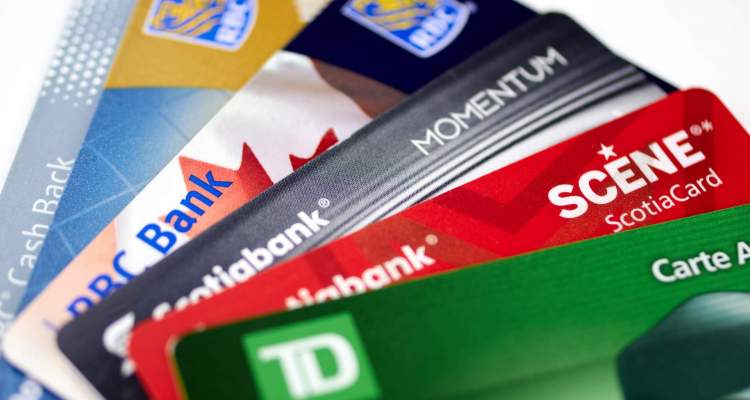
Identity theft
Picture this scenario: You are standing in the line up ready to pay for your new shoes, the store is busy, it is hot and cranky people are everywhere. Just as the clerk rings in your purchase and tells you that will be $112.50. You reach into your wallet for your Visa card and your credit card is gone. Frantic, you search your purse, your pockets; you check your other packages, the floor where you are standing, but no card. Your heart is pounding! You are feeling sick to your stomach. Then you rush out to your car, no card there either, you race home and search everywhere, but all to no avail.
The card is gone – misplaced or worse stolen!
Stolen cards
First, you phone the card’s issuers and inform them that your card must have been stolen. The issuer cancels the card, but it is already too late. The thief who stole it has been busy making various purchases and using your card to pay for them.
Although credit card fraud is not overly common in Canada, it is definitely on the rise. In 2001, a reported 12,000 Canadians experienced some of the frightening effects of identity theft. Credit card fraud may not be totally eliminated; however, there are steps that you can take to reduce your risk of becoming a victim. Once again, credit education is the key. Education on identity theft and credit card fraud can save you a lot of anxiety, anger, stress, and money.
Identity theft can be defined as the use of another person’s personal information (examples are a person’s SIN number or credit card numbers) in order to receive financial gains or prosper financially. The thefts range from using stolen credit cards or bank cards to purchase homes, household items, cars, etc., all the way to committing serious crimes using the victim’s identity. This is of great concern to our city police departments and the RCMP; however, it is often difficult to catch the culprits since they are using a false identity (Yours).
Self protection
Fortunately, there are some simple steps that you can take to reduce your risk of becoming a victim of fraud. Although there are no guarantees in life, these steps may help to protect you and your valuable information.
- Keep your SIN number in a private location; never carry it in your wallet or in your purse. Although you may think that your SIN card is a good choice of identification, your driver’s license or care card will work just as effectively. Remember that if your SIN number is stolen, the thief is likely to use the number or sell your SIN to someone else. This could make things difficult for you in the future. So be careful with your SIN number.
- If you do not use your credit cards often (congratulations!), be sure that you check your wallet or purse frequently just in case they go missing. Credit card companies should void fraudulent charges made on your card in the event of your card being stolen. However, you are required to report the missing card immediately upon the discovery that the card is missing to the card issuers. The creditor may also require a police report. In most cases, there are laws that will restrict your financial liability.
- Always make sure that when you dispose of your credit card statements or bank slips that you shred or cut up the documents. Some fraud artists often resort to searching through trash bags in order to retrieve these important account numbers.
- Sign all your new credit cards or bank cards as soon as you receive them.
- Don’t give your credit card number to anyone over the phone, unless you make the phone call to him or her. If you decide to use your credit card over the Internet, be sure that the site you are on is secured – so it is more difficult for people to access your credit card number. Often, thieves will engage in ‘telephone scams,’ which require you to give your credit card number over the phone. So be careful. If you receive an unsolicited telephone call seeking personal information about you and your assets, REMEMBER, you are speaking to a stranger.
- Never lend your credit cards to anyone; this includes family members. If you do and an alert salesperson detects the “fraud”, they will keep the card, and your sister, brother, mother, or whoever could be arrested. You could end up in serious trouble with your creditors. Do not lend your cards – ever!
- Never leave your cards in an unsafe place. Leaving your credit cards in your car, at your office, or on the kitchen counter makes them vulnerable to being stolen or lost.
- If you discover that your card is missing, make sure that you phone the issuers immediately. Keep a list of all your account information (expiration dates, account numbers, issuer’s phone numbers) in a secured location that will be easy to access in the event of a stolen or missing card.
- Check your credit card statements and bank account statements for their accuracy. Always check your monthly statement to ensure that you made all of the purchases and not someone else. If you have questions about the statement, don’t hesitate or delay telephoning the card issuer.
- Make sure that all the information on a charge slip is correct before you sign it. Keep in mind that you are agreeing to pay whatever is on the charge slip, and you definitely don’t want to pay for something that you didn’t buy.
Credit card fraud is a very serious issue that all Canadian need to be aware of. So, safeguard your personal and credit information at all times. You just never know who is watching and waiting to financially become you.






